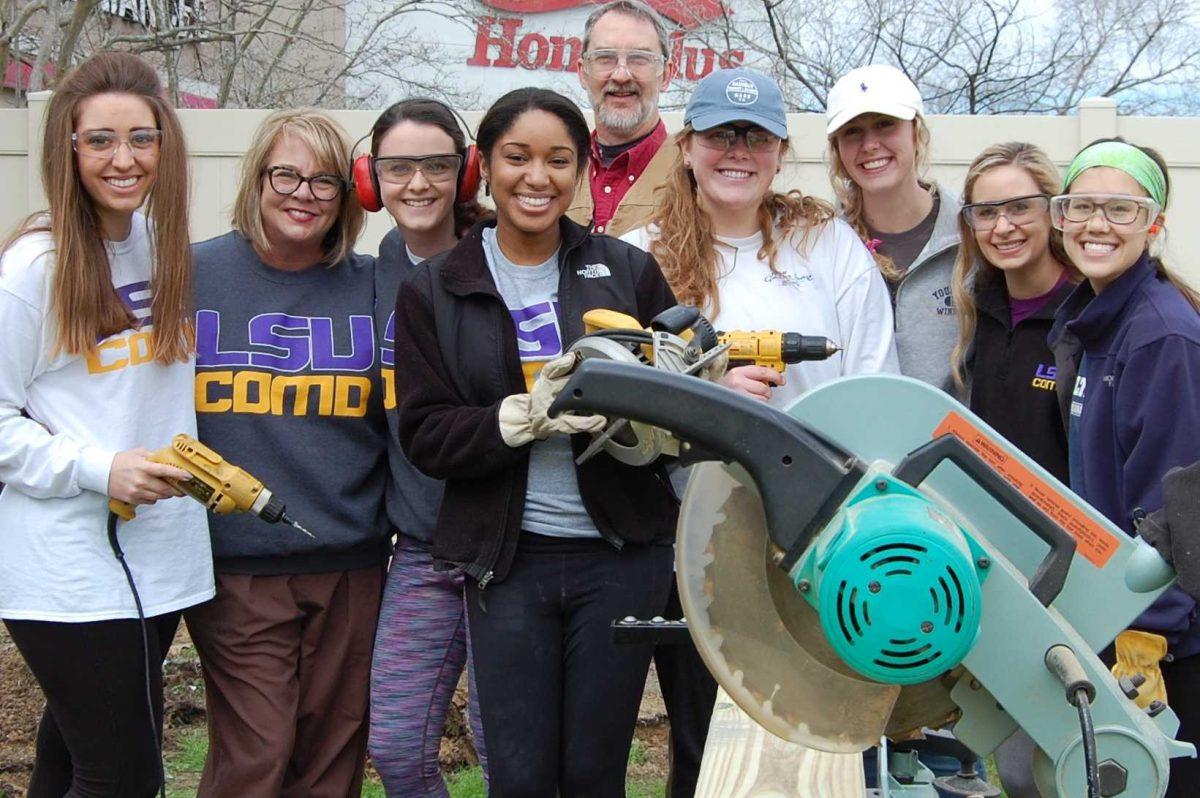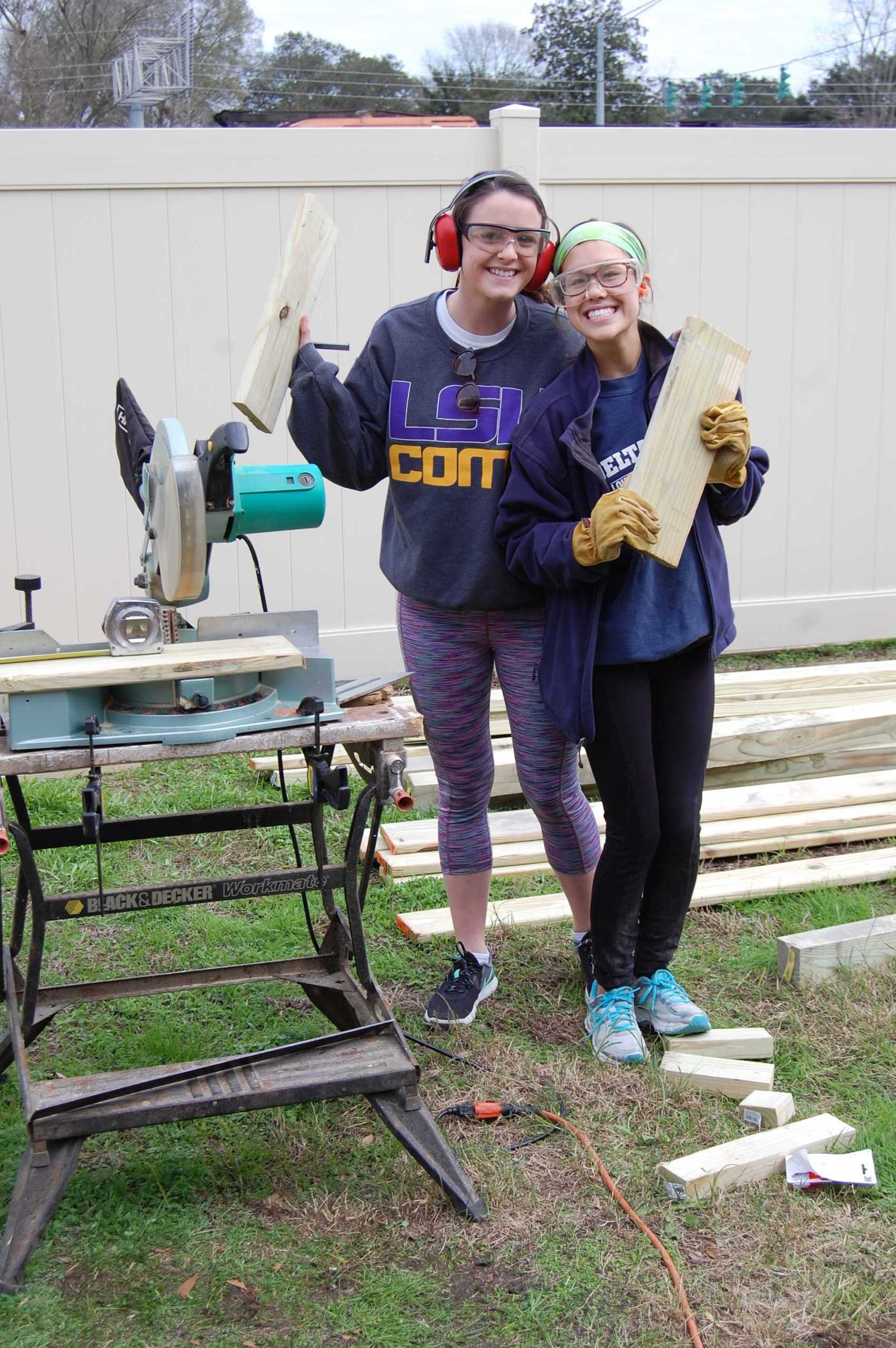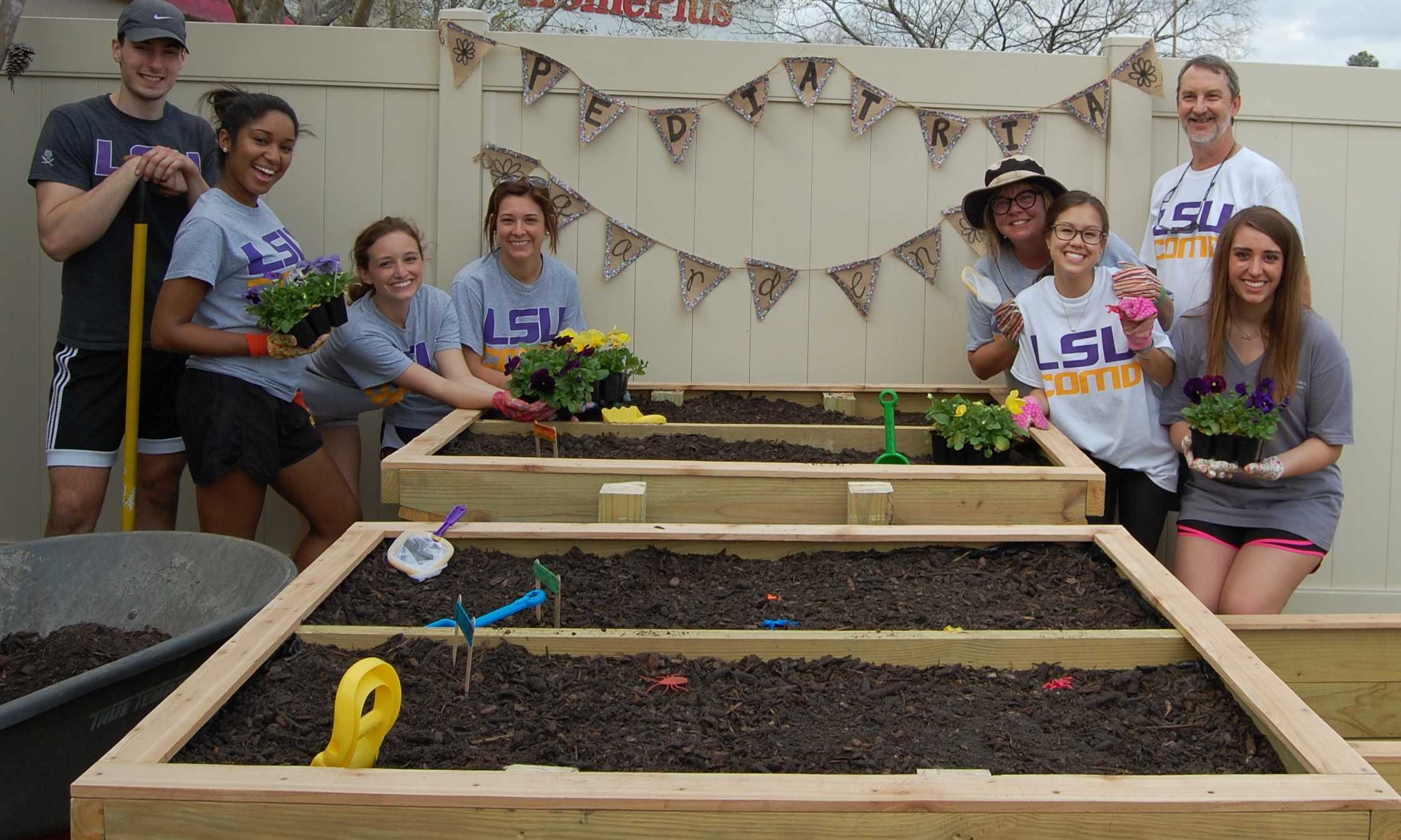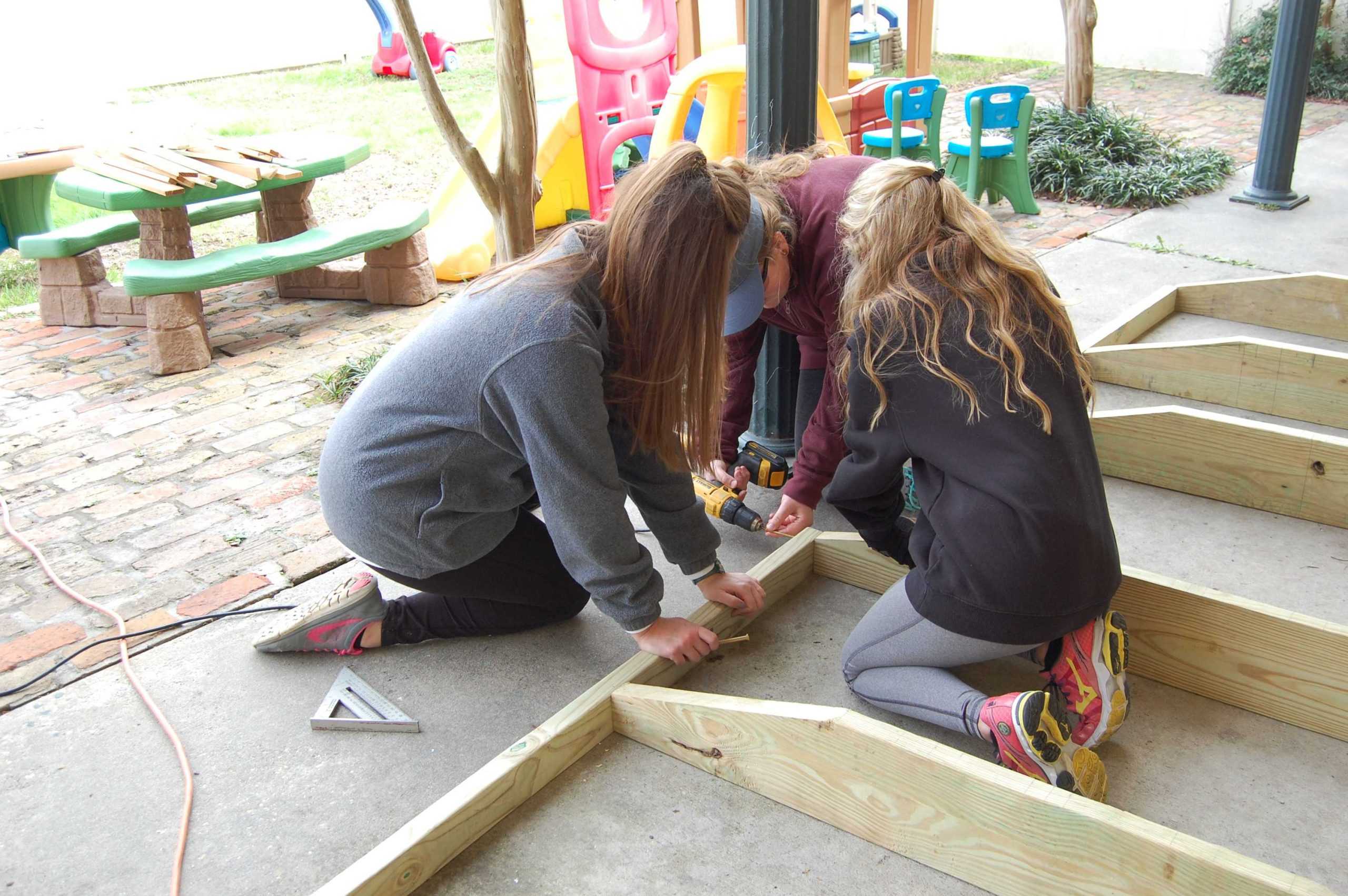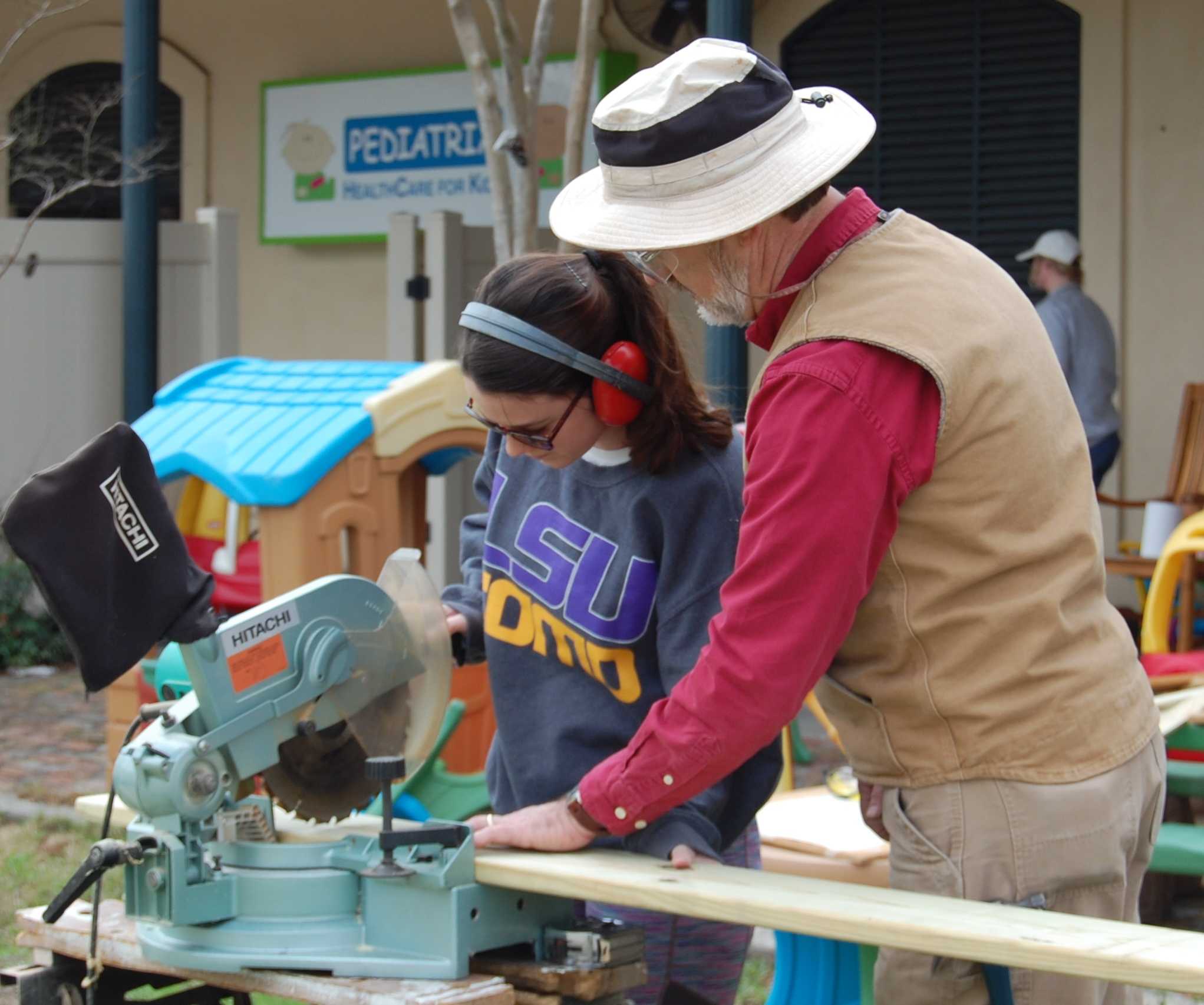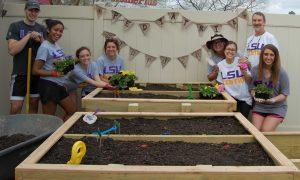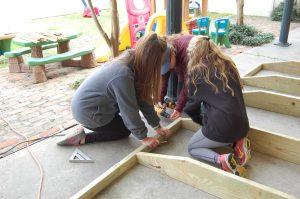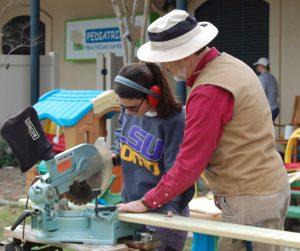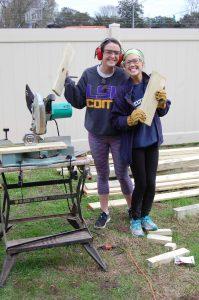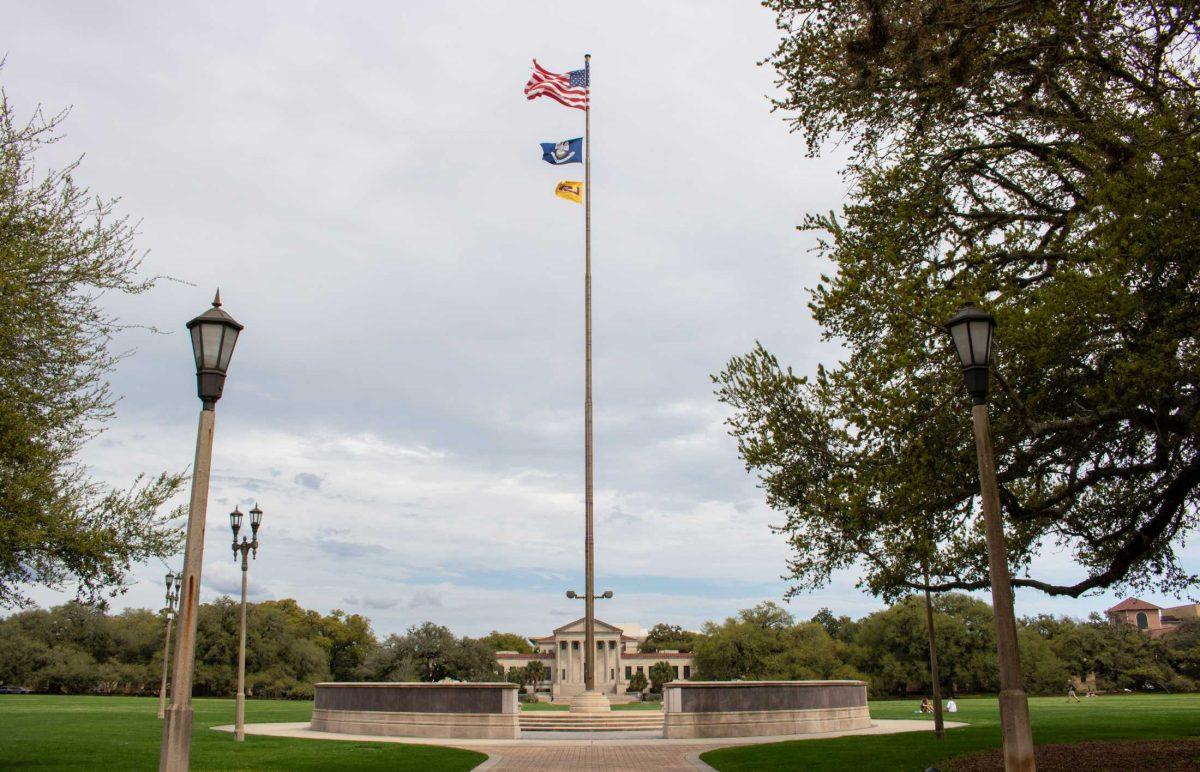University students gave the Pediatria HealthCare for Kids day center a gift that will last them long after they’ve left: a garden to teach children with special medical needs how to nurture their independence.
The University’s National Student Speech-Language-Hearing Association undergraduate chapter raised funds, designed and created an adaptive garden at the Pediatria Healthcare for Kids day center in Baton Rouge on Jan. 27 and Feb. 11.
The day center provides services to medically fragile children. The University’s Speech, Language, Hearing Clinic has a contract with the day center to provide speech language therapy.
Shannon Farho, a speech-language pathology clinical instructor, is one of the supervisors who goes to the center with graduate students to provide evaluations in speech therapy.
She said the occupational therapy, physical therapy and speech therapy departments have requested an adaptive garden for years. She spoke with NSSLHA and handed the project over to the chapter’s philanthropy chair, Brittany Klein, a senior communication sciences and disorders student.
“I really enjoyed doing it,” Klein said. “It was fun to coordinate things and get other people excited about it.”
Farho said her social worker friend’s husband, Al Hindrichs, assisted in creating an adaptive garden at the McMains Children’s Developmental Center in Baton Rouge and was able to assist the NSSLHA chapter in building the garden at the Pediatria Healthcare for Kids day center. She said he provided the tools, mentored the students and taught them various skills, including mixing and pouring concrete, sanding and using a skill saw and drill.
The adaptive garden was built with three different elevations. Farho said the purpose of different elevations was to allow patients with standing ability and patients in wheelchairs the opportunity to interact with the garden.
The low level is for the ambulatory patients who can stand, the middle level is for those in wheelchairs and the highest level is for children in standers.
The adaptive garden allows patients to plant, weed and play in the dirt.
“That’s the goal: to make them as independent as possible,” Farho said.
Klein said her favorite part of this project was the ability to see the effects of it firsthand.
“I just love that it was really something that everyone could kind of get involved with and something that we could see immediate effects from,” Klein said. “It was just a great experience to come together and work on something that was a big project, but [we were] also able to give back to the community and foster friendships with each other.”
Farho said NSSLHA is currently assisting the library at Tanglewood Elementary School in Central, Louisiana with post-flood recovery. She said the organization’s members also volunteer at St. James Place Assisted Living in Baton Rouge by visiting and communicating with the residents who may have dementia or Alzheimer’s disease which can lead to communication breakdown.
“They are just ‘communication buddies’ with some of the residents there,” Farho said.
NSSLHA created an ambassador program to introduce high school students who are interested in communication disorders studies to the department.
Additionally, the University’s communication sciences and disorders department is creating an augmentative and alternative communication resource lab with funds awarded by the College of Humanities and Social Sciences.
Farho said she has contacted the national NSSLHA headquarters with pictures from the project, and they plan to feature the project in the next national NSSLHA newsletter.
Students create garden for children at local day care center
February 20, 2017
NSSLHA garden




